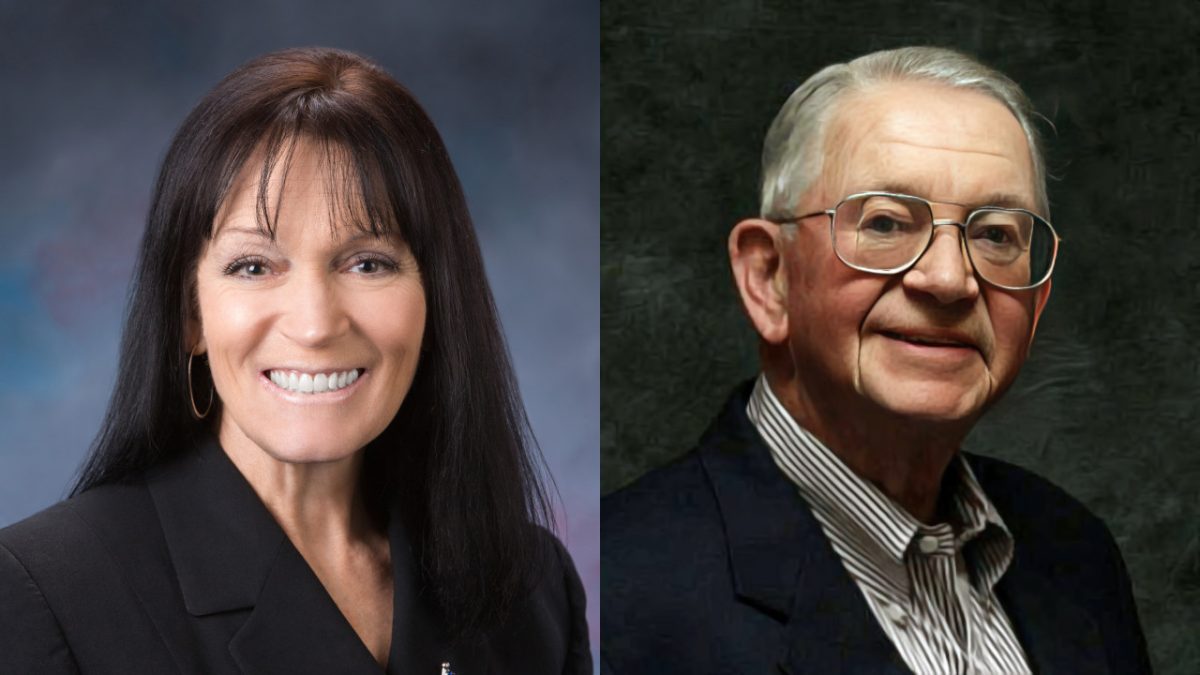A Conversation with Sen. Christy Zito & Tea Party Bob
Podcast Notes by Bob Neugebauer
Legislative Pay Raise Controversy
In a notable move that highlighted growing tensions over government spending, the Idaho Senate recently passed a resolution to reject a proposed legislative pay increase, only to see it halted in the House Ways and Means Committee. Senator Christy Zito, who spearheaded the effort with what she calls the “gang of 8” conservative legislators, expressed strong opposition to the proposed 23% salary increase.
The pay raise, which would have increased legislative base pay to $25,000, came after leadership initially requested a 43% increase. “We just couldn’t justify that kind of increase when our people on social security are only getting a 2.5% increase,” Zito explained, noting that many of her constituents are struggling with rising costs, including property taxes and healthcare expenses.
The resolution’s defeat in the House Ways and Means Committee followed arguments from Representative Jason Monks suggesting higher pay was necessary to attract quality legislators – a position Zito found “completely insulting” to current lawmakers who view their role as public service rather than a career opportunity.
Federal Lands and State Resources
The conversation turned to a recent victory for Idaho conservatives, as former President Trump responded to Senator Richards’ advice by halting plans for wind turbines on 100,000 acres of lava flats. This development led to broader discussions about federal control over Idaho lands, with Zito noting that 63% of Idaho’s land area remains under federal management.
“It’s just thievery from the people of the State of Idaho,” Zito stated, highlighting how federal control affects everything from forest management to local economies. She pointed to Camas County, one of the state’s poorest, which has the highest percentage of federally controlled land in Idaho.
Education and Federal Funding
As Idaho grapples with potential changes to federal education funding, Zito, who serves on the Senate Education Committee, addressed concerns about the state’s educational future. She noted that while Idaho ranks near the bottom in per-pupil spending, some teachers report the state achieves show better academic outcomes than these numbers might suggest.
Zito identified the education system as “top-heavy,” with disproportionate funding going to administration rather than classrooms. She also highlighted concerns about federal funding dependencies, noting that 44% of Idaho’s state budget comes from federal sources, each dollar carrying regulatory strings that can hamper local control and innovation.
Looking Ahead: Political Landscape
Looking toward future state leadership, Zito offered insights into potential gubernatorial candidates for the next election cycle. While current Governor Brad Little’s plans remain unclear, she suggested House Speaker Mike Moyle and former Senate Pro Tem Chuck Winder might be positioning themselves for possible runs if Little doesn’t seek reelection.
The senator also praised current Attorney General Raúl Labrador’s performance, particularly his willingness to “stand on constitutional principles” and join with other state attorneys general on significant legal challenges.
Fiscal Challenges
Throughout the discussion, concerns about fiscal responsibility remained a central theme. With Idaho maintaining approximately $1.3 billion in rainy day funds and serving as the state’s largest employer, questions persist about sustainable government growth and spending.
Zito expressed particular concern about the expanding Medicaid budget following expansion, warning that changes in federal matching rates could significantly impact state finances. “What happens if the Feds decide to not match at the rate that they’re matching, then we will have to pick up any part of that?” she questioned, highlighting the ongoing challenges of balancing state services with fiscal responsibility.
As Idaho continues to navigate these complex policy waters, the tension between conservative fiscal principles and growing government programs remains at the forefront of legislative debates, with implications for everything from education funding to public land management.



